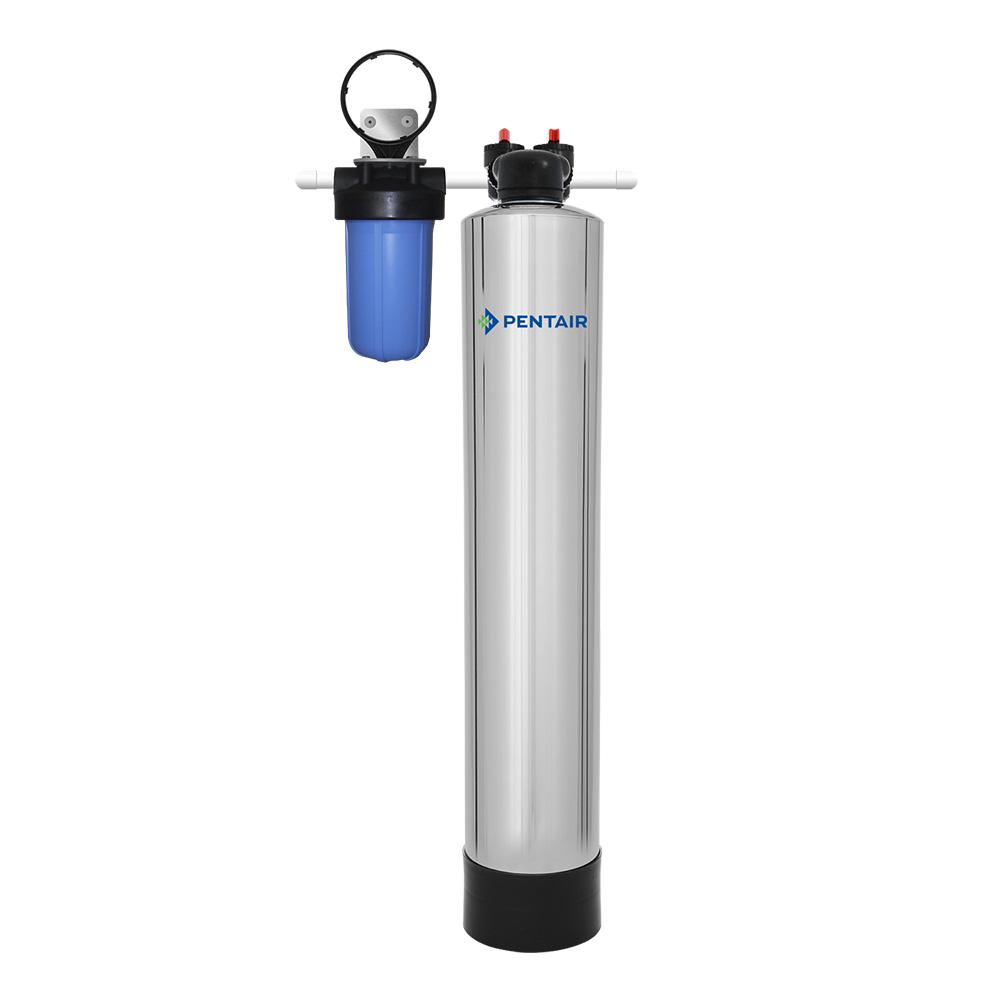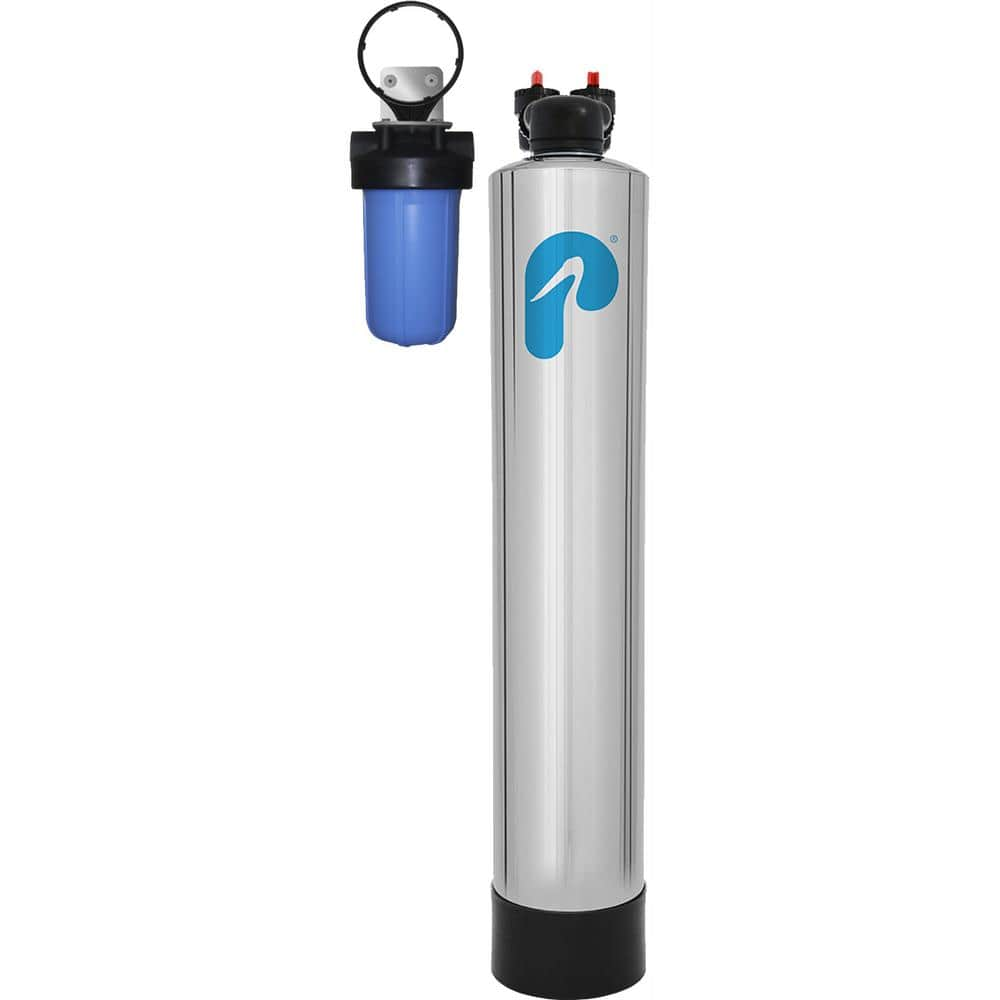PENTAIR 10 GPM Whole House NaturSoft Water Softener Alternative System
-
( 7 Reviews )Rated 5.00 out of 5 based on 7 customer ratings07
Eliminates the effects of hard water without the use of salt. The only DVGW approved technology in North America. Certified to prevent 99.6% of scale.
-
Le Creuset Signature Handle 10 1/4 Inch Enamel Cast Iron Skillet
Rated 4.80 out of 505Le Creuset Signature Handle 10 1/4 Inch Enamel Cast Iron Skillet
Rated 4.80 out of 505 -
Pelican Water 15 GPM Whole House NaturSoft Water Softener Alternative System
Rated 5.00 out of 509Pelican Water 15 GPM Whole House NaturSoft Water Softener Alternative System
Rated 5.00 out of 509 -
Breville® The Barista Express™ Espresso Machine
Rated 4.83 out of 506Breville® The Barista Express™ Espresso Machine
Rated 4.83 out of 506 -
Breville BEP920 Dynamic Duo Machine and Grinder Package – Seattle Coffee Gear
Rated 5.00 out of 502Breville BEP920 Dynamic Duo Machine and Grinder Package – Seattle Coffee Gear
Rated 5.00 out of 502
The NS3-P Pentair Pelican NaturSoft Water Softener Alternative System is the premium, maintenance-free, water softener alternative certified for 99.6% scale prevention. Key benefits include scale treatment, improved cleaning/housekeeping and subjective improvements in personal care without the use of sodium/potassium chloride. This unit is IAPMO tested and certified according to NSF/ANSI 61 for material safety, as well as DVGW-9191 for prevention of scale buildup. It leaves in beneficial minerals and naturally treats water without salt, conditioning water without the slippery feel.
- Wrapped in premium stainless steel to ensure long life, durability and unsurpassed quality
- Simple installation; system comes ready to install inside or outside, protected from freezing weather
- Stainless steel exterior resists stains, rust and oxidation
- Does not require electricity to operate
- Leaves in beneficial minerals
- Conditioned water without the slippery feel
- Handles hard water scale in plumbing and appliances, extending their life
- IAPMO certified NSF/ANSI 61 and NSF/ANSI 42 for structural integrity
- Efficient design with no wasted water
- Only water softener alternative certified 99.6% effective by DVGW-9191
Additional information
| Product Depth x Height x Width (in.) | 18 x 49.5 x 18 |
|---|---|
| Tank Length x Width (in.) | 18 x 48 |
| Manufacturer Warranty | Comprehensive System Warranty: 1 Year Tank and Valve Warranty: 5 Years |
10 (ten) is the even natural number following 9 and preceding 11. Ten is the base of the decimal numeral system, the most common system of denoting numbers in both spoken and written language.
GPM may refer to:
- GPM (software), software providing support for mouse devices in Linux virtual consoles
- Graphical path method, a mathematically based algorithm used in project management
- Gallons per minute, a unit of volumetric flow rate
- Gallons per mile, a unit of fuel efficiency
- Gaurela-Pendra-Marwahi district, Chhattisgarh, India
- General Purpose Macrogenerator, an early macro processor
- Global Marshall Plan, specific ideas on how to save the global environment
- Global Precipitation Measurement, a NASA and Japan Aerospace Exploration Agency project to measure global rainfall
- Graduated payment mortgage, a type of loan
- Graham Patrick Martin, an American actor
- Grand Prairie Municipal Airport, a public-use airfield in Grand Prairie, Texas, United States (Federal Aviation Administration identification code)
- Grand Prix Masters, an auto racing series for retired Formula One drivers
- Gross profit margin, a calculation of revenue and cost of products
- Protestant Church in the Moluccas, a church denomination in the Indonesian provinces of Maluku and North Maluku, which in Indonesian is referred to as "Gereja Protestan Maluku"
- Google Play Music, a cloud media player by Google
- King of the Mountains competitions in cycle racing, derived from Gran Premio della Montagna (Italian) or Gran Premio de la montaña (Spanish)
A house is a single-unit residential building. It may range in complexity from a rudimentary hut to a complex structure of wood, masonry, concrete or other material, outfitted with plumbing, electrical, and heating, ventilation, and air conditioning systems. Houses use a range of different roofing systems to keep precipitation such as rain from getting into the dwelling space. Houses generally have doors or locks to secure the dwelling space and protect its inhabitants and contents from burglars or other trespassers. Most conventional modern houses in Western cultures will contain one or more bedrooms and bathrooms, a kitchen or cooking area, and a living room. A house may have a separate dining room, or the eating area may be integrated into the kitchen or another room. Some large houses in North America have a recreation room. In traditional agriculture-oriented societies, domestic animals such as chickens or larger livestock (like cattle) may share part of the house with humans.
The social unit that lives in a house is known as a household. Most commonly, a household is a family unit of some kind, although households may also have other social groups, such as roommates or, in a rooming house, unconnected individuals, that typically use a house as their home. Some houses only have a dwelling space for one family or similar-sized group; larger houses called townhouses or row houses may contain numerous family dwellings in the same structure. A house may be accompanied by outbuildings, such as a garage for vehicles or a shed for gardening equipment and tools. A house may have a backyard, a front yard or both, which serve as additional areas where inhabitants can relax, eat, or exercise.
Softener may refer to:
- Fabric softener, a conditioner that is typically applied to laundry during the rinse cycle in a washing machine.
- Stool softener, anionic surfactants that enable additional water and fats to be incorporated in the stool, making it easier for them to move through the gastrointestinal tract.
- Water softener, removes calcium, magnesium, and certain other metal cations in hard water.
- Softener ball, a special plastic ball used to dispense liquid fabric softener in clothes washing machines that lack built-in softener dispensers.
A system is a group of interacting or interrelated elements that act according to a set of rules to form a unified whole. A system, surrounded and influenced by its environment, is described by its boundaries, structure and purpose and is expressed in its functioning. Systems are the subjects of study of systems theory and other systems sciences.
Systems have several common properties and characteristics, including structure, function(s), behavior and interconnectivity.
Water is an inorganic compound with the chemical formula H2O. It is a transparent, tasteless, odorless, and nearly colorless chemical substance. It is the main constituent of Earth's hydrosphere and the fluids of all known living organisms (in which it acts as a solvent). It is vital for all known forms of life, despite not providing food energy or organic micronutrients. Its chemical formula, H2O, indicates that each of its molecules contains one oxygen and two hydrogen atoms, connected by covalent bonds. The hydrogen atoms are attached to the oxygen atom at an angle of 104.45°. In liquid form, H2O is also called "water" at standard temperature and pressure.
Because Earth's environment is relatively close to water's triple point, water exists on Earth as a solid, a liquid, and a gas. It forms precipitation in the form of rain and aerosols in the form of fog. Clouds consist of suspended droplets of water and ice, its solid state. When finely divided, crystalline ice may precipitate in the form of snow. The gaseous state of water is steam or water vapor.
Water covers about 71% of the Earth's surface, with seas and oceans making up most of the water volume (about 96.5%). Small portions of water occur as groundwater (1.7%), in the glaciers and the ice caps of Antarctica and Greenland (1.7%), and in the air as vapor, clouds (consisting of ice and liquid water suspended in air), and precipitation (0.001%). Water moves continually through the water cycle of evaporation, transpiration (evapotranspiration), condensation, precipitation, and runoff, usually reaching the sea.
Water plays an important role in the world economy. Approximately 70% of the fresh water used by humans goes to agriculture. Fishing in salt and fresh water bodies has been, and continues to be, a major source of food for many parts of the world, providing 6.5% of global protein. Much of the long-distance trade of commodities (such as oil, natural gas, and manufactured products) is transported by boats through seas, rivers, lakes, and canals. Large quantities of water, ice, and steam are used for cooling and heating in industry and homes. Water is an excellent solvent for a wide variety of substances, both mineral and organic; as such, it is widely used in industrial processes and in cooking and washing. Water, ice, and snow are also central to many sports and other forms of entertainment, such as swimming, pleasure boating, boat racing, surfing, sport fishing, diving, ice skating, snowboarding, and skiing.






by Rick
I bought this unit 2 years ago still working great.
by Grey
I purchased the Pelican NaturSoft Water Soften and was surprised at the fast delivery and how easy the installation was. It’s for a new build which isn’t finished yet so I can’t rate the taste of the water, but so far I am very happy with the purchase.
by Thomas
Easy to install. Looking forward to testing our water again in a month to see the actual effects.
by Sandra
Great system that requires little to no maintenance.
by Dale
wanted a salt free softner. getting too old to lug salt.it is a great unit.my plumber put it in in less then an hour. never leaked.
by John
Started showing results faster than I expected. Simple to Install.
by Gabe
self installed filter and n3 tank.